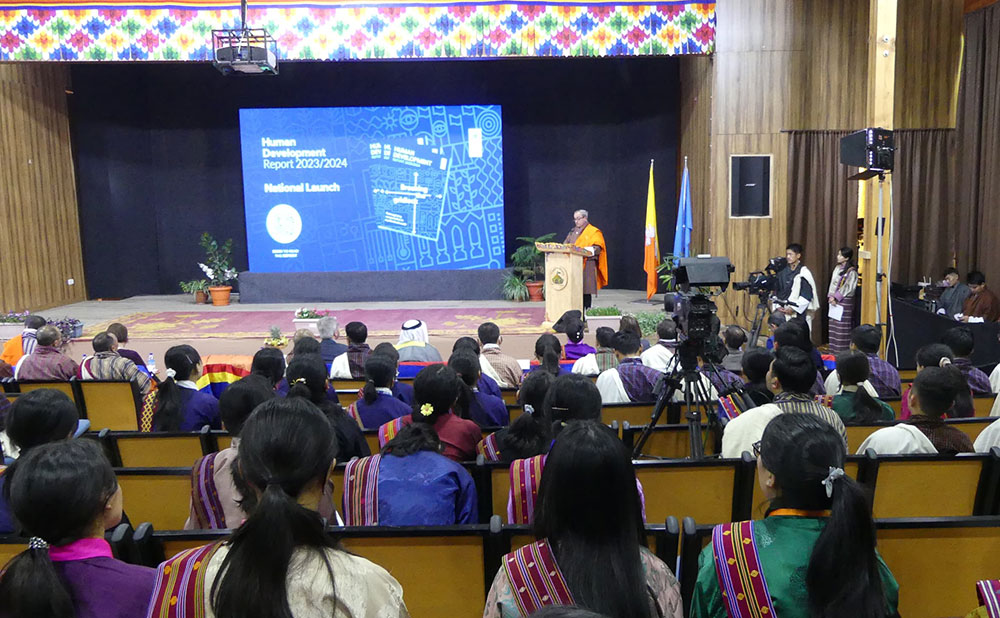…UNDP’s report calls for co-operation in a polarised world
YK Poudel
Bhutan’s Human Development Index (HDI) witnessed a progressive growth, reaching 0.681 in 2022. This represents an average annual growth rate of 1.32 percent between 2010 and 2022.
As per the consolidated 13th Plan, the government’s plan is to elevate the human capital index to 0.71 by the year 2034.
Bhutan has been ranked 125th globally in the HDI components study. Bhutan’s ranking has moved up by two ranks from 127 in 2022’s report and 129th in 2021.
As per a recent study by the UN Development Programme titled, “Breaking the gridlock: Reimagining cooperation in a polarized world” which was launched today studies the HDI of 193 countries.
Of the nine South Asian countries the order of standings is: Iran and Sri Lanka (78), Maldives (87), Bhutan (125), Bangladesh (129), India (134), Nepal (146), Pakistan (164), and Afghanistan (182).
Human development index, life expectancy at birth, expected years of schooling, and gross national income per capita are studied for the report. Bhutan in 2022 scores 0.681, 72.2, 13.1 and 10,625 respectively for different sub-categories.
The trend of HDI for Bhutan was 0.582 in 2010, 0.625 in 2015, 0.668 in 2019, 0.675 in 2020, and 0.675 in 2021. Bhutan falls under the medium human development category.
Bhutan is vulnerable to natural disasters and the impact of climate change, investment in climate adaptation and mitigation can reduce risks and improve the resilience of people and the natural environment.
Globally, unprecedented confluence of interconnected risks—climate change and biodiversity loss, global pandemics, technological divide, and cross-border economic variation among others.
At the midpoint to 2030, the target date to meet the SDGs, the world is more off track than four years ago.
UN Secretary General, António Guterres stated that geopolitical tensions are rising with threats form the climate crisis. “Disruptive technologies and we do so at a time of chaotic transition.”
Projections from the UNDP Human Climate Horizons platform show that if we continue on the current path of intense planetary pressures, climate change will have devastating and highly unequal impacts on human development. “Even with moderate mitigation, almost 40 million people are expected to die because of higher temperatures from now to the end of the century. In a scenario of very high emissions, the death toll could surpass 190 million people.
The UNDP’s 2023 Gender Social Norms Index, which treats biases as deviations from global shared standards of gender equality, shows that gender equality is being constrained by biased social norms against women.
Future
The rise in political polarization and zero-sum beliefs makes international cooperation more politicized and contested in domestic politics, enflaming beliefs and narratives about international institutions.
To help narrow agency gaps, institutions need to be people-centred, co-owned and future-oriented.
Gender Inequality Index, presents a composite measure of gender inequality using three dimensions: reproductive health, empowerment and the labour market.
“Political polarization’s impact on international co-operation is manifested, in part, through reduced support for official development assistance in more polarized high-income countries,” the report states.
Collective action and the representation of workers and employers through social dialogue, essential for democracy and good governance, hold potential for advancing human development.


